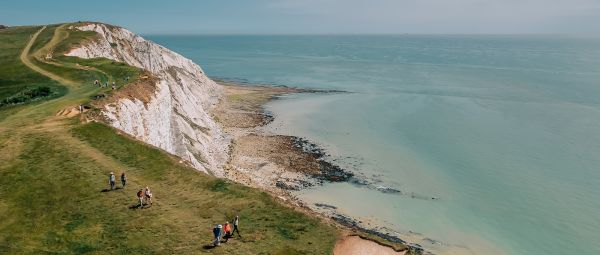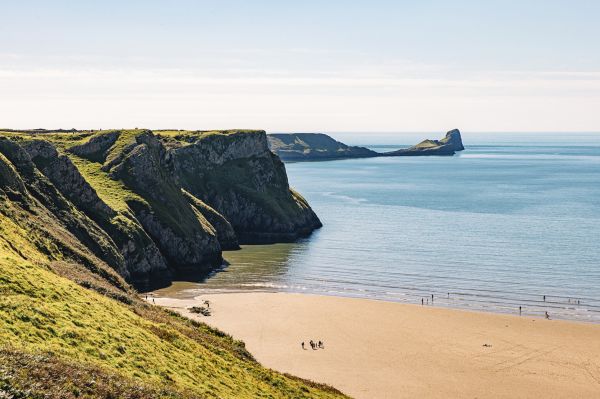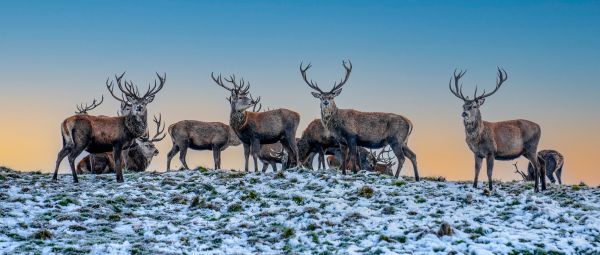8 expert tips to upgrade your outdoor photography skills
How to captivate your friends and family with inspiring images when out walking

Oscar Farrera has travelled the world photographing amazing places and beautiful animals. Now he works for the Ramblers’ partner HX Hurtigruten Expeditions, photographing incredible destinations and the unique wildlife en route, plus documenting guests’ journeys and activities, so they can focus on enjoying an experience of a lifetime.
Oscar has exclusively shared 8 of his top tips for improving your photography, whether you are travelling around the world, or hiking close to home. The Ramblers partnership with HX Hurtigruten Expeditions not only offers you discounts on expeditions, but every booking supports our work to improve paths and increase access to nature by breaking down barriers to walking in nature.

Remember to view the world with the best lenses ever created: your eyes
I tell guests on HX Hurtigruten Expeditions to please admire the place’s beauty and connect with it first. Take at least one minute and enjoy. This is the best way to keep these memories. Then, grab your camera…

Take your time and take better pictures, not tons of pictures
It’s so easy these days to take a huge number of photos, but to improve we need to think more before pressing the shutter button, just like in the old days. This way, we will get better results and, of course, be more satisfied.
Keep your images simple. Good pictures will be easy to understand
Avoid distractions: define your subject and apply the most common composition rule used: the rule of thirds

Use the right equipment for the result you want
Smartphones are great, especially as they are light to carry when hiking, and easy to share your best photos with friends and family. But it depends on the final result you want, and smart phones might fall short in some situations, like zoomed-in or telephoto images. If you are planning to edit your photos then shoot in RAW format, a file without compression for post-processing.
Use a long lens for the best wildlife photography
Whether you are in your local hills or on a beach in the Antarctic it is hard to get close to wildlife, and we don’t want to disturb them anyway. So a long lens is cruciaI, even if they are heavy! I recommend a range from 24 to 300, or even better, 400+, for wildlife.
If you have only one camera body, you will need to swap. Be careful with the weather, in the UK or at sea! If you can carry two bodies, attach a 24-70/105 lens to one camera and a 100-400 to the other.

For moving objects like birds in flight, use shutter priority (Tv/S modes) and control the speed.
Don’t worry about the depth of field—the camera will adjust it. Leave ISO at 400 or Auto.

Landscape photography means landscape mode, no matter what camera you use
Avoid taking breathtaking landscapes vertically (portrait mode). Why? You want to have the whole landscape, not only 33%, especially when you are trying to capture epic views like mountains, glaciers or coastlines.

Always carry spare batteries and charge all of them entirely before leaving your home (or ship). And bring spare SD cards with you
There’s nothing worse than running out of power when you’ve got the perfect shot lined up. And even though I’ve told you to take photos sparingly, it’s hard to decide which images to delete using the small screen on your camera if you run out of storage. Much better to switch SD cards and review your images when you’re back home.

7 fantastic sections of the England Coast Path you can already enjoy
Castles, cliffs, seals and seabirds: discover the highlights of England’s landmark coastal trail on seven stretches already open for walkers.

8 great walks on Gower, South Wales
Explore Gower, Britain’s original Area of Outstanding Natural Beauty, on these super coast path strolls.

9 of the most beautiful winter walks
Wrap up warm and wander among the prettiest landscapes sparkling with frost and bustling with birds and other wildlife.
